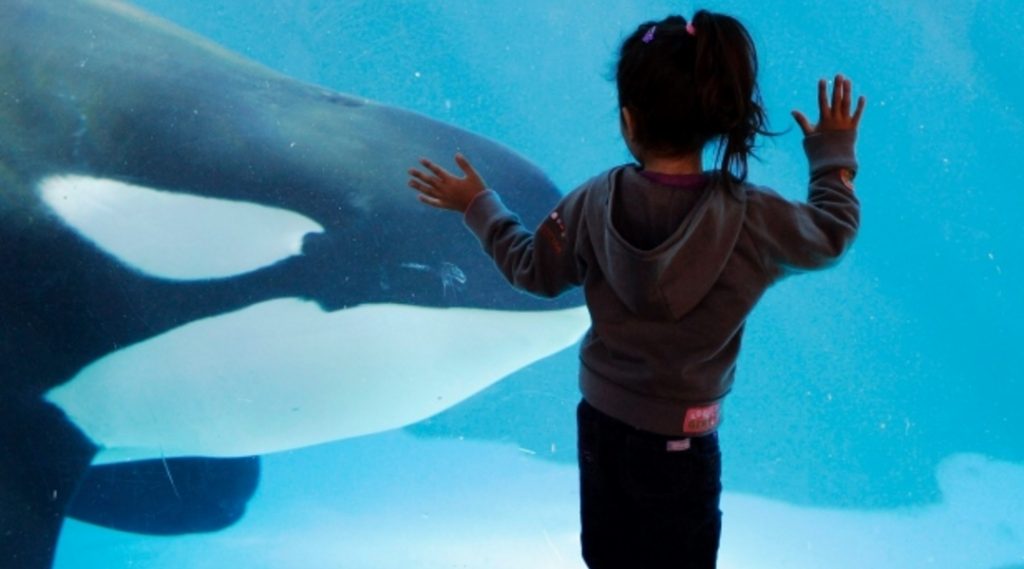
Embattled theme-park operator SeaWorld announced Thursday that it is ending its controversial captive-breeding program for orcas, meaning the killer whales currently in its care “will be the last generation of orcas at SeaWorld.”
The company said it is ending “all orca breeding as of today,” officially putting an end to a practice animal-rights activists have called inhumane – and that had already been prohibited by officials in California.
“Why the big news?” the company said in a statement. “SeaWorld has been listening and we’re changing. Society is changing and we’re changing with it. SeaWorld is finding new ways to continue to deliver on our purpose to inspire all our guest to take action to protect wild animals and wild places.”
SeaWorld has come under intense scrutiny over its treatment of captive killer whales since the highly critical 2013 documentary “Blackfish,” which spotlighted the animals’ living conditions and the dangers posed to their handlers.
The company’s CEO resigned in December 2014 after months of declining revenue and attendance at its 11 parks across the United States. Last year, SeaWorld announced the end of its iconic killer whale shows in San Diego.
In October, the California Coastal Commission said SeaWorld would not be permitted to breed the animals while in captivity. The new breeding restrictions – announced as the commission approved an expansion of SeaWorld San Diego’s killer whale habitat – made it likely that the orcas currently in captivity would be among the company’s last; Thursday, SeaWorld made it official.
“This announcement reaffirms our commitment to not collect marine mammals from the wild,” SeaWorld said. “After all, we haven’t collected an orca from the wild in almost 40 years, and the orcas at SeaWorld were either born there or have spent almost their entire lives in human care.”
The Humane Society of the United States, which partnered with SeaWorld on its new policies, praised Thursday’s announcement.
“These two organizations have been long-time adversaries, but we’re excited now to see the company transforming its operations for the better on animal welfare,” Humane Society president and CEO Wayne Pacelle said in a statement. “Today’s announcement signals that the era of captive display of orcas will end and that SeaWorld will redouble its work around rescue and rehabilitation of marine mammals in crisis and partner with us to tackle global threats to marine creatures.”
The orcas currently in captivity will not be released into the wild.
SeaWorld Entertainment president and chief executive Joel Manby said in an op-ed published by the Los Angeles Times that “some critics want us to go even further; they want us to ‘set free’ the orcas currently in our care. But that’s not a wise option.
“For as long as they live, the orcas at SeaWorld will stay in our parks. They’ll continue to receive the highest-quality care, based on the latest advances in marine veterinary medicine, science and zoological best practices.”
“Blackfish,” the documentary that inflamed the SeaWorld backlash, focused on the life of Tilikum, a SeaWorld orca that killed one of his trainers and is associated with two other deaths. Last week, SeaWorld Orlando announced that Tilikum is suffering from an illness that may take his life.



